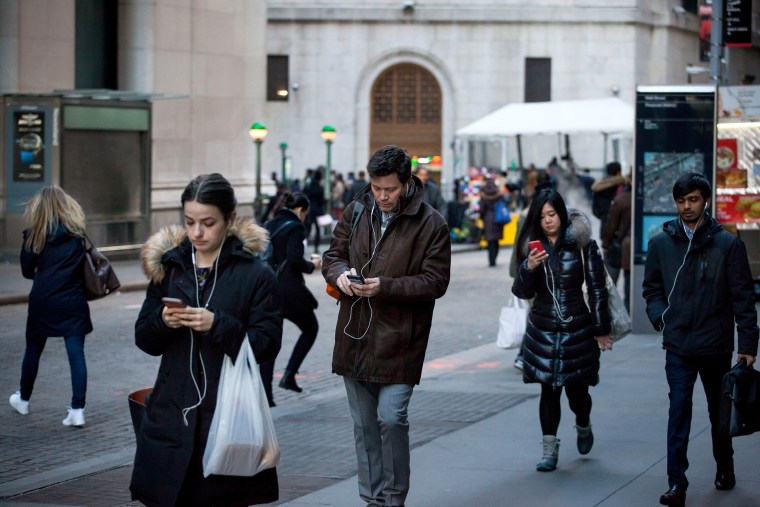The concept of digital cash can seem abstract to people who are used to dealing with checks, credit cards and ATMs. But if it works as promised, it could change the financial lives of many consumers.
On Tuesday, Facebook and 27 other companies and organizations released a plan for a digital currency meant to bridge the gap between current digital offerings and the future of finance. The new currency, called Libra, will have a variety of features meant to sidestep the shortcomings of conventional finance institutions such as banks and credit unions, and represents an attempt to improve upon modern smartphone apps like Venmo or other ways to move money around.
“Our hope is to create more access to better, cheaper, and open financial services — no matter who you are, where you live, what you do, or how much you have,” David Marcus, who runs Facebook’s blockchain efforts and is the co-creator of Libra, tweeted.
Here are a few examples of how a digital currency could be used by consumers, and a look at the challenges that may lie ahead before the concept is widely adopted.
Easy, fast money transfers
One of the most common banking fees consumers encounter are transfer fees, particularly when sending money across national borders.
A variety of startups have emerged in recent years to address this issue. TransferWise is among the most popular apps for sending money abroad quickly with low fees. Venmo and Zelle have gained users as easy ways to send money between friends. Those systems, while better than previous options, can still take multiple days, charge fees or require users to have bank accounts and — importantly — deal in national currencies.
Libra is meant to be its own account entirely apart from that system. Facebook has built its own digital wallet, Calibra, which will also be integrated into its messaging apps, WhatsApp and Messenger. Users would be able to send Libra about as easily as they send a text message and avoid issues such as exchange rates.
Banking the unbanked
Libra may not make much of an immediate impact on people who already have smartphones and bank accounts. But access to banking remains out of reach for 1.7 billion people around the world, including millions of Americans.
Libra’s backers say that its digital currency system could be a lifeline for those people, giving them the security and stability of traditional finance without the need for a traditional bank. In theory, people could put their money in a digital wallet instead of in a checking account, avoiding a bank entirely. The Libra Association, the nonprofit group that will operate the currency, includes other nonprofits such as Mercy Corps and Womens’ World Banking that have sought to bring economic stability to underserved populations.
The plan gained the attention of Andrew Yang, a U.S. businessman who is also running for the Democratic presidential nomination. Yang has championed alternative ideas to improve economic conditions for poorer Americans.
“The new Facebook-backed cryptocurrency Libra could be a big step for the hundreds of millions of unbanked around the world,” Yang tweeted.
Boosting innovation
Beyond the features of Libra, the prospect of a global monetary system that exists outside of the existing financial industry could jolt banks and governments.
While Facebook is receiving most of the attention for the project, Libra is open-source, meaning anyone or any company could build on its framework and create a wallet or other financial service.
Cryptocurrency advocates also see widespread adoption of digital currencies as key to a new era of innovation.
Nick Grossman, a partner at Union Square Ventures, a New York City-based venture capital firm and Libra Association member, wrote in a blog post that Libra has the chance to drive global adoption of cryptocurrencies and its underlying technology.
“Magical new user experiences will be possible due to interoperability and reduced friction, the same way that the Web’s native interoperability unlocked countless new use cases and experiences,” Grossman wrote. “And, perhaps most importantly, we will open the door to self-sovereign digital identities (private keys) that are the underpinnings of user-controlled privacy and control of data.”
Challenges ahead
Libra faces a number of challenges in the near term — most notably regulation — as well as long-term questions about its underlying technology and governance.
Government regulation of cryptocurrencies is an ongoing issue, and Libra already faces political pushback in Europe. Mark Carney, governor of the Bank of England, said Tuesday at an annual meeting of the European Central Bank that Libra has the chance to become “systemic” and “will have to be subject to the highest standards of regulation.”
Libra also faces a variety of questions about technical aspects of its system, including about its security, privacy, governance, transparency and whether it can truly work for millions, if not billions, of people.
Facebook and its partners offer considerable technical and legal expertise, but they will still have to work within the confines of existing laws.
“Is Facebook being given a pass?” said Renee Leibler, president and co-founder of the Blockchain Digital Asset Forum, an educational group at New York University. “That doesn’t exactly work in a country where the rule of law applies to everyone.”

